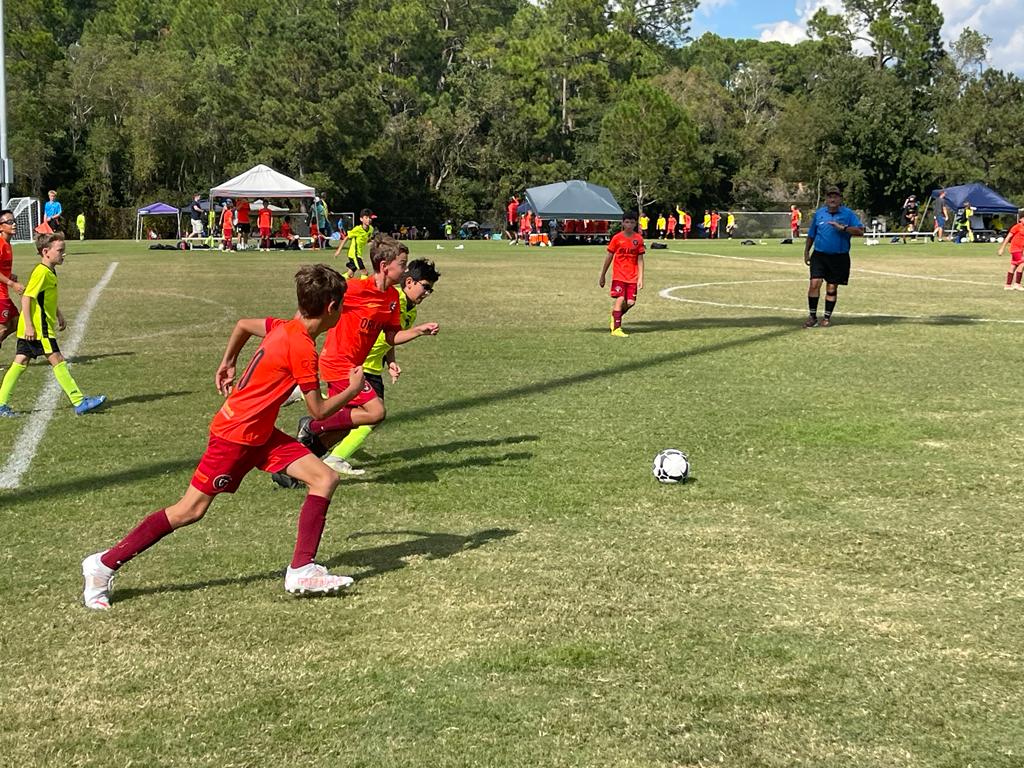Millions of kids in the US play youth soccer every year. Recent data shows that it’s the most popular sport in the country for youth leagues. Why? In part, because soccer is one of the most popular sports in the entire world. It’s a great way to introduce kids to team sports. Even if they don’t pursue soccer for long, the benefits of playing at clubs like FC Highland’s can last for years. Here are 10 benefits to playing youth soccer:
Cardiovascular endurance
There are plenty of physical benefits to playing youth soccer, but one of the biggest is cardiovascular endurance. Youth soccer keeps kids on their feet, running around from one side of the field to the other, for both practices and games. The time spent running both challenges and strengthens the lungs and the heart. Improved cardio has shown to have lasting positive effects for kids.
Strategic thinking
Even youth soccer takes strategy. Figuring out a pass on the field, thinking fast to find an opening — these quick decisions all go toward a strategy for the team. Youth soccer players learn to think ahead of their own actions and see how their actions could affect those of their teammates.
Improved coordination and balance
Soccer doesn’t just challenge cardio; it challenges how coordinated players are as they kick and run simultaneously. For beginners, not tripping over the ball while running it up the field is a huge challenge to overcome. Once they get comfortable, that fancy footwork will leave them with an improved sense of coordination and balance.
Boosted bone strength
It might seem counterintuitive, but time under pressure helps strengthen bones (provided kids get enough rest and recovery between practices and games). Not only does it boost bone strength, soccer also helps strengthen the muscles and tendons around the bones.
Improved mood
Yes, that’s right! Regardless of a win or a loss on the field, soccer can boost kids’ moods. This is thanks to endorphins, the feel-good chemicals that your brain releases when you’re physically active. Endorphins reduce the feelings of pain and increase the chances of feeling great.
Reduces stress and anxiety
In the short term, endorphins not only elevate your mood but can also reduce stressors to the brain. The effects of endorphins can last for hours, leading to a more relaxed mood well after kids step off the field. Playing soccer (and other physical activities) in the long term can actually help reduce stress and anxiety by acclimating the body to stressors.
Learn to control emotions
There’s emotion on soccer fields, for sure, but playing in soccer games helps players keep those emotions in check. That emotional control can help them as they pursue other team sports or off the field — at home or in the classroom.
Soccer builds teamwork
“Teamwork makes the dream work,” and soccer is one of the best sports for learning how important teamwork is. Even the biggest soccer stars could not get where they are without their entire team. One of the fastest ways for kids to learn they can’t do it all is by playing soccer.
Helps create empathy
Like other team sports, soccer keeps you working closely alongside your teammates. A key part of building teamwork and trust is showing empathy — understanding how teammates are feeling. Soccer helps kids develop empathy as players go through wins, losses and milestones together. Youth league soccer can even create empathy toward rival teams.
Youth soccer is fun!
The biggest perk to playing youth soccer? It’s a blast! Win or lose, kids play soccer because it’s an opportunity for them to laugh, joke around, and meet other players doing something they love.
We might be biased at FC Highland, but we think youth soccer is the best. If you’re looking for a way to get your kid involved with soccer, try our development league. If your child already loves soccer and has experience, register for our competitive league. And if you’ve still got questions for us, contact us and our team will get back to you.
